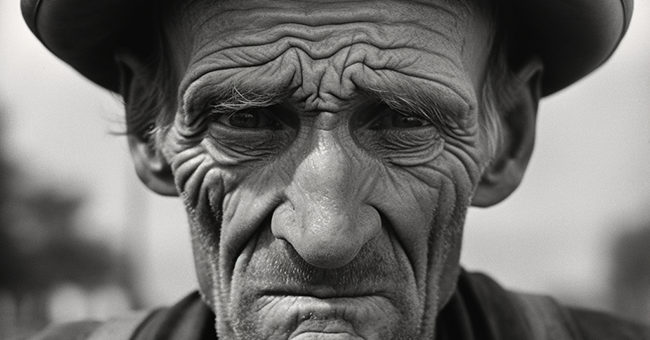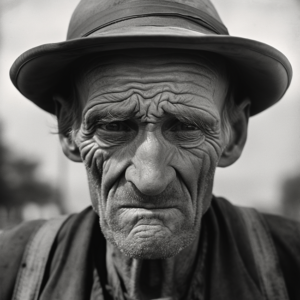
George Palmer, a farmer from Sullivan County, filed a $20,000 lawsuit in 1907 against a New York barber after his 20-year-old beard was mistakenly shaved off while he slept during a visit to the barber’s shop.
Sues for Lost Beard

Deprived unwittingly of his luxuriant whiskers while he slept under the ministrations of a barber, George Palmer, a Sullivan County farmer has brought suit for $20,000 damages in the Supreme Court against John R. Reisler, proprietor of a barber shop near Herald Square.
Now, these were no ordinary whiskers. For two decades they grew, fanned by the breeze and wet by the early dew as Palmer attended to his morning chores. They covered his bosom, hid his collar of celluloid from view, and made a necktie an extravagance. The owner of these hirsute [beard] adornments has passed the meridian of life and he had before him the vision of living in his old age beneath a shelter of his own raising, even as one would rejoice in plenty under his own fig tree.
Palmer was in New York recently and he decided to have a shave and his whiskers trimmed. He went to Reisler’s shop, and being in a playful mood, he chaffed the journeyman who attended him.
He had seen the “Great White Way” and the large hotels and the theaters, and his tone was blithe as he compared them all with the “opery-house” at Parkville and the village store. Badinage was handed about in quantities. By and by, under the stroke of the lather brush, Palmer was lulled to sleep. He awoke and the barber said something bright, which the farmer thought was over gay.
“Cut it out,” he says he said.
“Cut it off,” the barber says the farmer said, and at the same time made a pass with his hand in the direction of his beard.

Anyway, Palmer went to sleep again and was awakened by the swish of a hot towel and the blowing of a stiff breeze. The breeze came from a compressed air atomizer plant in the cellar. Here was movement in the air, a high wind and no vibrant response from the agricultural chin. With a start Palmer awoke. He ran his hands over his cheeks and stared wildly at himself in the glass. His face was as smooth as a brook-worn boulder, and the barber was spraying upon it the perfume of new-mown hay.
“Ruined!” cried the astonished farmer. “What will folks say? What will my wife say? Who told you to cut off my beard? I tell you I didn’t. Why, man, I daren’t go back home.”
Mr. Reisler came in at this moment and the place grew lively. Palmer said that he would be the talk of the country, that he would be upbraided for coming to Broadway and returning clean shaven and skittish, and that he had been disgraced forevermore and that dogs would bark at him.
“It took me 20 years to grow that beard,” said he, “and, by ginger, barber, I’ll have the law on you. You see all these valuable oil paintings here on your wall? Sure as taxes, Mr. Barber, I’ll get a judgement and I’ll strip ’em out of this place.”
Jacob Strahl, an attorney who represents the plaintiff, says that his client is not suing for the value of the beard but for the “humiliation” occasioned by its loss.
Source: The Marion daily mirror. (Marion, Ohio), 23 Sept. 1907.

